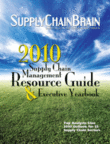
Visit Our Sponsors |
|
|
|
|
|
|
|
|
|
|
|
|
|
|
|
|
|
|
|
|
|
|
|
|
|
|
|
|
|
|
|
|
|
|
|
|
|
|
|
|

For many companies, understanding and effectively hedging commodity prices make the difference between profit and loss - or in extreme cases the firm's very survival. Many interdependent factors impact commodity prices: among them are demand/business cycle, supply constraints, regulation/political factors, speculation/investment market factors, and exchange rates. I have long touted the advantages of a multi-discipline hedging strategy team with expertise in sourcing and commodity management, engineering, treasury, product management, and economic analysis. Now you should add weather and climate change to that list.
Climate Change 2007, the Fourth Assessment Report of the United Nations Intergovernmental Panel on Climate Change, makes several predictions, including: increased areas of drought; more and stronger cyclones, hurricanes and storms; rising sea levels; increased evaporation, leading to heavier rainfall, more extreme weather, and more erosion; increased desertification in vulnerable tropical areas; and disruptions and substantial changes in local weather patterns and conditions.
These can have a huge impact on commodities through:
• Reduced yields or failed crops and bumper crops in some locales.
• Disrupted mining and oil operations
• Forest fires, impacting timber and vegetable oil production
• Disrupted transportation
o Excessive thermal expansion degrades transportation infrastructure (bridges, pavement, railroad tracks)
o Warmer arctic temperatures are thawing permafrost, causing failure of roads, rail beds, bridge supports, pipelines, and airstrips. The season for the use of temporary ice roads has been dramatically shortened.
• Fossil fuels
o Carbon emissions trading will have a huge, but as yet poorly understood impact on the price of fossil fuels.
o Volatile winter weather causes dramatic changes in heating oil and gas prices.
Extreme and highly volatile weather patterns will be the norm for decades to come. There are a variety of approaches available to hedge this volatility. If you want to have a well-informed and successful hedging strategy, then you must understand and account for the impacts of weather and incorporate strategies for hedging against weather extremes.
The Outlook
Extreme weather events will continue during 2010, convincing more commodity managers that weather must be accounted for. Providers of medium to long-term weather forecasts (3 to 12 months) and weather-impact analytic services will do well this year, as will weather-hedging instruments and markets.
RELATED CONTENT
RELATED VIDEOS
Timely, incisive articles delivered directly to your inbox.






